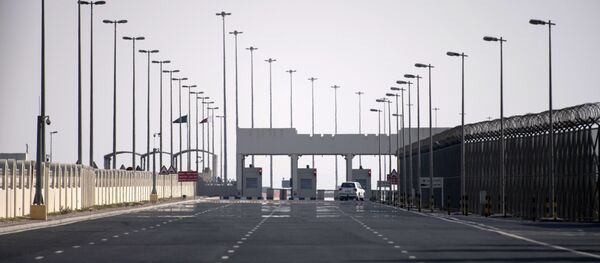If the Saudis, he said, kill any Turkish military during their invasion, it will aggravate relations between Turkey and Saudi Arabia and, more seriously, possibly even redraw the map of the whole Middle East.
The political scientist however suggested that Riyadh has other options on the table: it might encourage a state coup d'etat in Qatar through influencing one of the branches of the Qatari Royal family aimed at ousting from power the current Emir of Qatar.
While it is still unclear how serious this threat is, there have been numerous coups in the countries of the Persian Gulf, which had been set up by the royal families.
This might be the biggest threat to Qatar. However if the coup fails, the crisis will last for a long time and have wildly unpredictable consequences for Qatar and the region as a whole.
On July 3, Qatari Emir Sheikh Tamim bin Hamad al-Thani responded to the 13-point ultimatum Doha received from Saudi Arabia, Bahrain, the United Arab Emirates and Egypt. The response was handed to the Emir of Kuwait, as his country is acting as a mediator in the crisis.
While the details of the response were not immediately available, on Wednesday, the ministers of Egypt, Saudi Arabia, Bahrain and the United Arab Emirates issued a statement, where they said that they "regret the negative response from Qatar."
"The response the four states got was overall negative and lacked any content. We find it did not provide a basis for Qatar to retreat from its policies," said Egyptian Foreign Minister Sameh Shoukry, who read out the statement.
On June 22, Saudi Arabia, Bahrain, the United Arab Emirates and Egypt issued a 13-point ultimatum to Qatar. The list contains demands that Doha needs to meet in order to restore ties with other Arab nations.
Saudi Arabia said that restrictions on Qatar will continue after it rejected the ultimatum.
The Saudi foreign minister said further steps would be taken against Qatar "at the appropriate time," and would be in line with international law.
"We're not doing this because we want to hurt Qatar, we're doing this to help Qatar," Adel bin Ahmed al-Jubeir stated.





